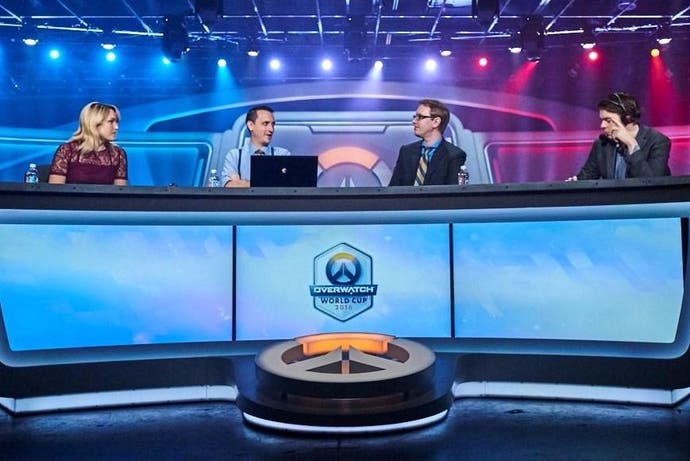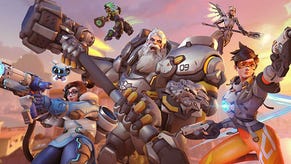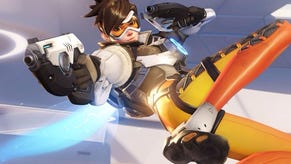A year on from launch, Overwatch is a struggling eSport
Sombra news.
This time last year, it was almost unthinkable that Overwatch's eSports scene and the word failure could ever appear in the same sentence. But that is the situation we find ourselves in.
The first few months of Overwatch's eSports life were positive. Small scale LAN events were semi-regular, there were online competitions offering a few thousand dollars a couple of times a month, and big name organisations were picking up teams left, right and centre.
But then BlizzCon happened, and the Overwatch League was announced. Blizzard promised a big-money league with location-based franchises and no relegation, but that is about all they said. At the time this seemed like one of the biggest and most positive announcements the world of eSports had ever seen - but now, just a few months on, with no news on when the League will launch, it is often credited with decimating Overwatch's growing competitive scene.
"There's a lot of people disappointed by how Blizzard has done the entire Overwatch League, pausing the ecosystem, pausing the community, nothing really is happening," says Hicham Chahine, CEO of eSports organisation Ninjas in Pyjamas.
"With the Overwatch League announcement happening then not following up, not being transparent, I think they were on a different path that seemed to fail. That was the rumour, they wanted to get the non-endemics [big non-gaming sponsors] into it, have them handing over big money. I don't think people bought into that, so now they're doing a little detour."
So, what's the problem? How is it that Overwatch, a game with over 30 million players, a game rooted in competitive multiplayer, has struggled as an eSport?
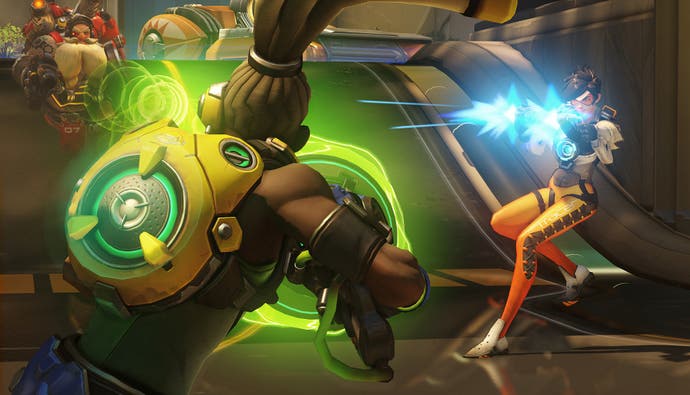
2017 so far has hardly seen any major LAN events in the West, with the only real competition of note being the OGN Apex league in Korea, where a couple of the best Western teams are invited to play.
A lack of events, especially ones that are time-zone-friendly for those watching outside of Asia, has stunted Overwatch's growth dramatically in the West. Twitch numbers have fallen off, some top-level players are returning to streaming full-time, and most third-party tournament organisers see no value in running Overwatch events.
"We spent quite a lot of time working on Overwatch, and the Overwatch Open tournament was really successful, from my point of view," says Michele Attisani, CBO and Co-Founder of FACEIT, a UK company that runs grassroots competitions as well as occasionally branching out into top-level stadium events.
Last year FACEIT partnered with Turner Broadcasting's ELEAGUE brand to run the Overwatch Open, a top-tier competition that featured all of the best teams and a massive $300,000 prize pool - an unheard of amount for a game so young. The event was a success and many expected both parties to continue in the world of Overwatch, but instead neither FACEIT nor ELEAGUE has held another major LAN event since.
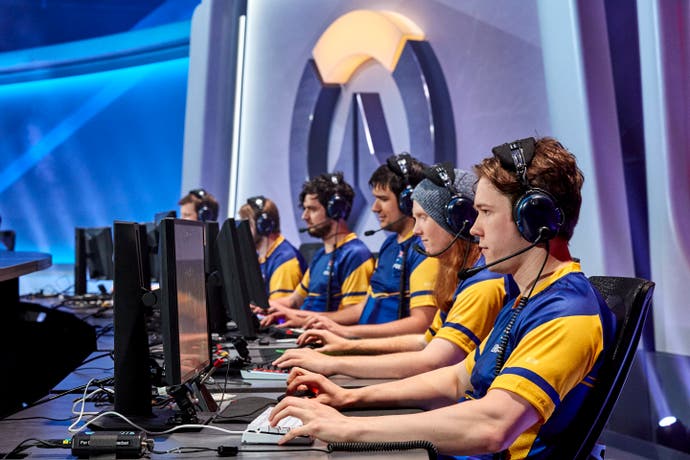
"We've been working with Blizzard ever since that event and Blizzard really took a very cautious approach - so they're thinking about everything that is happening and that is going to happen in the Overwatch scene," says Attisani when asked why FACEIT hasn't produced another event of that size - clearly trying to stay within the confines of the infamous Blizzard NDA that has been set up for anyone who knows anything about the upcoming league.
But FACEIT and ELEAGUE are not the only ones to go running from the Overwatch scene. ESL, DreamHack and even MLG, which is owned by Activision Blizzard, have all put on sizeable events in the past and have either dropped support completely or have reduced prize pools significantly in the past few months, and this has had direct consequences for the players themselves.
"When DreamHack announced they were not holding major events, that was our big moment of deciding," says Marty Strenczewilk, co-founder and CEO of eSports organisation Splyce, when talking about why they dropped their Overwatch team earlier this year.
"We're not out of the game for good, but I can't pay for a game that's my third most expensive and my tenth most viewed. That is because there's nothing to watch, not because there aren't people wanting to watch it. There's just no matches."
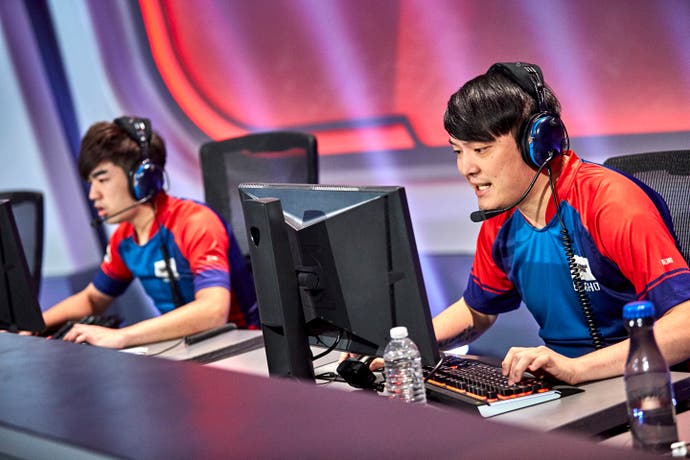
As viewer numbers have dropped, more major eSports organisations have dropped their teams. Team Dignitas, Fnatic, compLexity, Red Reserve, Team SoloMid and Denial Esports are just some of the teams that have dropped their rosters in the last few weeks. Some have stuck with their teams, but that is becoming increasingly difficult.
"No we haven't given up, we're committed to Overwatch," says Ninjas in Pyjamas' Chahine.
"We just extended our Overwatch team for two more years and are fully committed in Overwatch. We invest and provide them with the same resources as any other team."
A few weeks after this interview was conducted, Ninjas in Pyjamas dropped its Overwatch team.
While many organisations are dropping teams, some still have faith in Blizzard's shooter. Most notable is Immortals, which has some incredible young talent with a lot of potential. Immortals' impressive list of investors, which includes the likes of Linkin Park and the co-owner of the Memphis Grizzlies, means they don't have to worry about the financial side of keeping the team on, but even so it is somewhat surprising to see them keep the team when almost all of their competitors have dropped their rosters.
"Overwatch teams don't get a lot of exposure compared to a League of Legends team or a Counter-Strike team," says Noah Whinston CEO of Immortals.
"But nobody's picking up an Overwatch team because they think the current state of Overwatch is the best that Overwatch will ever get. Anyone who has an Overwatch team is doing it because they think it might give them a shot at Overwatch League.
"I think it's kind of disingenuous to say, we're not making any money from our Overwatch team right now, so we're going to drop them. Nobody who's going to pick up a team to make money right now is going to pick up an Overwatch team."
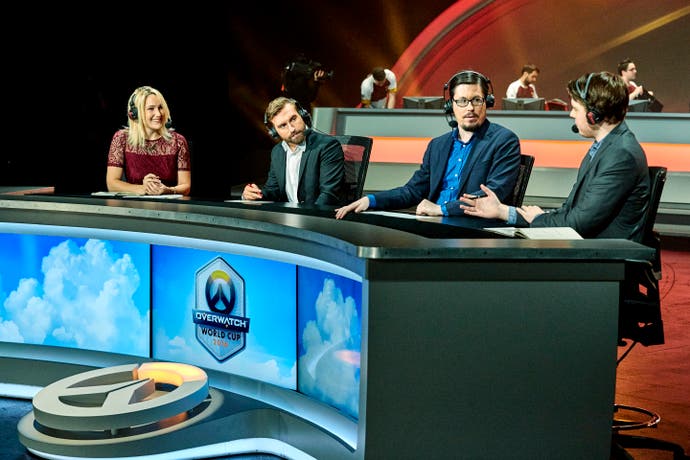
For those who control the money, the Overwatch eSports scene is a little doom-and-gloom. There isn't much money coming in right now, and with the reported cost of the buy-in for the Overwatch League hitting the multiple millions, some teams have already accepted that they won't make the cut. But at the end of the day it is the players who matter, and for the most part they still seem to be optimistic about Overwatch and their future career prospects.
"I definitely wish that there were more tournaments, that way more people can watch, and the players have an incentive to work even harder," says Koo "Fate" Pan-Seung, a player on Immortals.
"It depends on how much effort is put into the game by both Blizzard and the pro-scene, but I think that this can be a long-term career. I was concerned a while ago about it, but lately my mind has been changing because Blizzard has been showing that they are invested in Overwatch."
Right now, competitive Overwatch is not in a good place, and nowhere near where some had expected it to be, but the future looks positive - providing the Overwatch League happens. Currently, we're in the midst of Overwatch Contenders, the development league for aspiring Overwatch League pros. Early July will see the Contenders playoffs, where the final eight teams battle for the championship in Europe and North America.
As Blizzard says, organisations are looking to fill their rosters for the launch of the Overwatch League, and "all eyes will be watching this summer's competitive showcase". That's true in more ways than one. This is crunch time for Overwatch as an eSport. Competitive Overwatch is far from dead, but there is no other way of describing its first year than as a disappointment.
